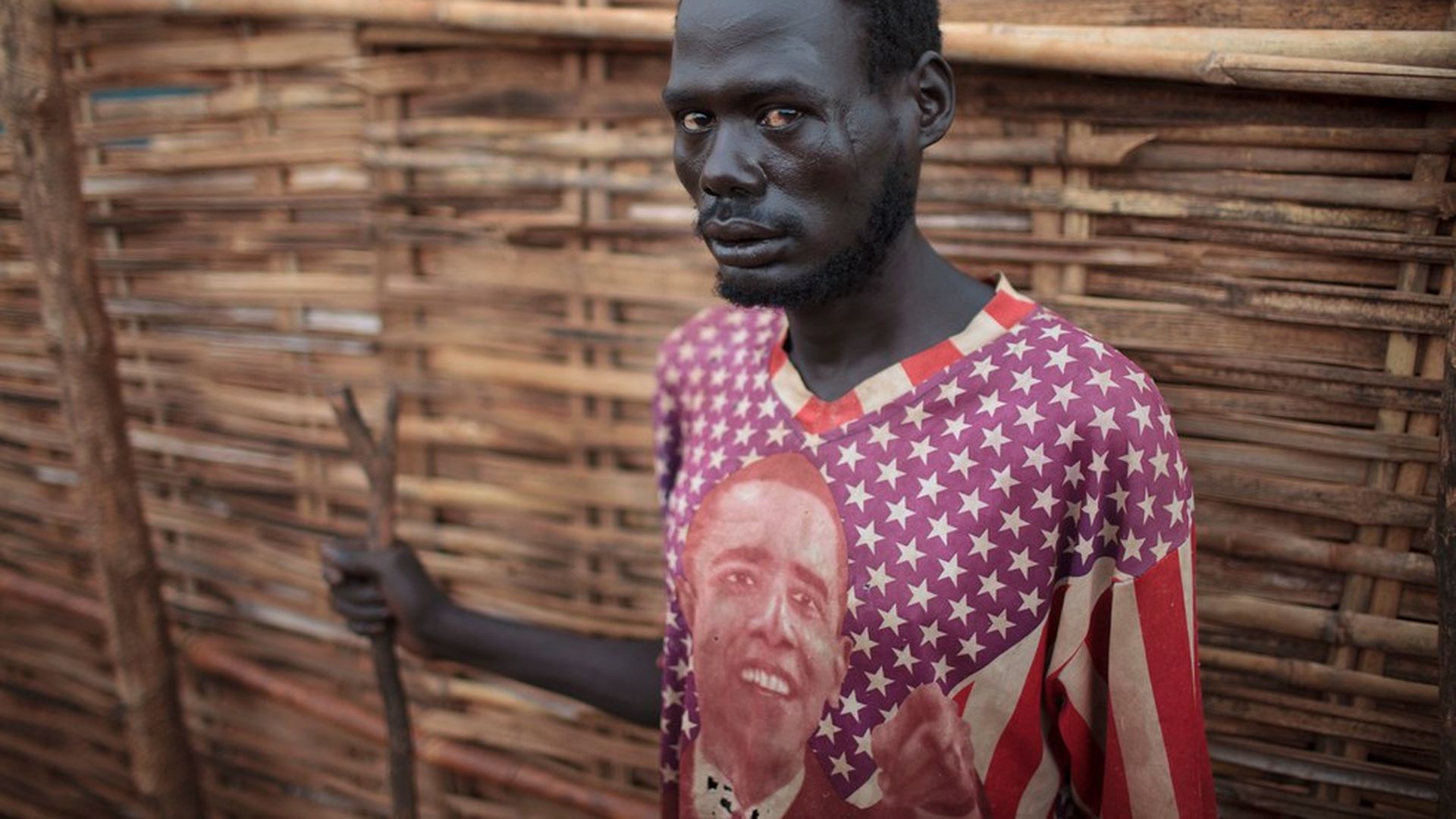Oct 18, 2017
U.S. support of South Sudanese military may have broken the law
Add Axios as your preferred source to
see more of our stories on Google.

Madut Quat wears a T-shirt depicting Barack Obama as he stands in the overcrowded United Nations' protected camp in Wau, South Sudan. Photo: AP
